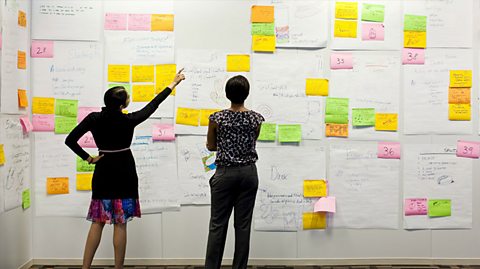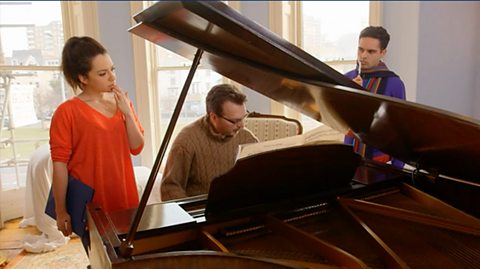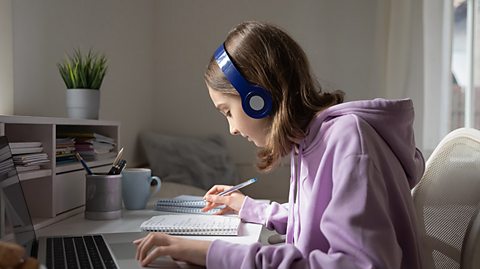Writing
Context, audience and purpose – WJEC
Before planning any writing, consider the context, audience and purpose. You can then make choices about layout, style, language and structure.

Writing fiction – WJEC
Writing fiction involves coming up with creative and original ideas to develop interesting pieces of writing. Find inspiration in your own experiences and the real world.

Writing non-fiction – WJEC
Writing non-fiction texts usually means writing about facts or opinions. Many non-fiction texts come with conventions of language, form and structure.

Planning – WJEC
The key to a successful piece of writing is the planning. It helps you to select vocabulary and order your paragraphs. You should also plan in time at the end to proofread your work.

Organising information and ideas – WJEC
Structuring work well allows your reader to follow the processes behind your ideas, and the overall direction of your text. Ideally, each paragraph should take you a step closer to your conclusion.

Literary techniques – WJEC
Techniques are used by writers as an attempt to make the reader think in a certain way. These techniques can be used to intrigue, inspire, persuade or simply convey information to the reader.

Vocabulary – WJEC
Vocabulary helps to create a particular style, tone or emotion for your reader. By showing ambition and creativity with your vocabulary, you can make your reader laugh, cry or think about an idea.

Links
- External linkExternal link
- External linkExternal link
- External linkExternal link
- External linkExternal link
- SubscriptionSubscription